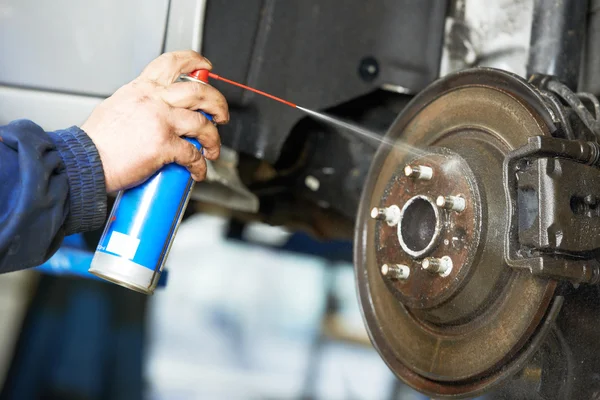Effective Corrosion Protection In Harsh Conditions: Solutions And Best Practices
Corrosion, a natural process of material degradation, poses significant challenges in extreme environments. These environments, characterized by harsh conditions such as extreme temperatures, high humidity, or aggressive chemical exposure, accelerate corrosion and lead to substantial maintenance costs and safety concerns.
Corrosion protection solutions, such as coatings, inhibitors, and galvanization, play a crucial role in extending the lifespan of materials and structures by preventing the damaging effects of environmental factors like moisture and chemicals. This article explores effective solutions and best practices for corrosion protection in extreme environments.
Understanding Corrosion in Extreme Environments
Corrosion is the deterioration of materials, usually metals, due to chemical reactions with their environment. In extreme environments, these reactions are intensified. Common extreme conditions include:
- High and Low Temperatures: Metals can become brittle at low temperatures or undergo accelerated oxidation at high temperatures.
- High Humidity and Salt Exposure: Marine environments and areas with heavy rainfall can lead to rapid rusting and degradation of metal surfaces.
- Chemical Exposure: Environments with acidic or alkaline substances can cause aggressive corrosion.
Understanding the specific environmental factors is crucial for selecting appropriate corrosion protection methods.
Advanced Materials for Corrosion Resistance
One of the most effective strategies for combating corrosion in extreme environments is using advanced materials that offer inherent resistance.

High-Performance Alloys
High-performance alloys, such as stainless steels and nickel-based superalloys, are designed to withstand extreme conditions. Stainless steels, for instance, offer excellent resistance to oxidation and corrosion in high-temperature environments. Nickel-based superalloys provide exceptional performance in both high-temperature and corrosive conditions, making them ideal for aerospace and industrial applications.
Composite Materials
Composites, which combine polymers with reinforcing materials such as fibers, are increasingly used in corrosive environments. These materials are resistant to chemical attack and can be tailored to specific environmental conditions. For example, fiberglass reinforced polymers (FRPs) are commonly used in marine environments due to their resistance to saltwater corrosion.
Protective Coatings and Treatments
- Epoxy Coatings: These coatings offer a robust defense by creating a strong, adhesive layer that shields materials from moisture, chemicals, and abrasion, making them ideal for harsh environments where durability and resistance are crucial.
- Thermal Sprayed Coatings: This method involves spraying molten or semi-molten metals like zinc or aluminum onto surfaces to form a thick, protective layer that can withstand extreme temperatures and corrosive conditions, providing long-lasting protection.
- Corrosion-Resistant Paints: Specialized paints, often containing zinc or aluminum, form a protective layer on metal surfaces, creating a sacrificial barrier that corrodes before the underlying metal, effectively preventing rust and degradation.
- Corrosion Inhibitors: These chemical additives either neutralize corrosive agents or form a protective film on surfaces, offering targeted protection in environments where traditional coatings might be impractical, such as within enclosed spaces or aggressive fluids.
Corrosion Inhibitors
Corrosion inhibitors are chemicals added to the environment or applied to surfaces to reduce the rate of corrosion. They work by neutralizing corrosive agents or forming a protective film on the material's surface.
Vapor Phase Inhibitors
Vapor phase inhibitors are chemicals that emit volatile compounds to create a protective film on metal surfaces within enclosed spaces. These inhibitors diffuse through the air, forming a barrier that prevents moisture and corrosive agents from reaching the metal. They are particularly effective for safeguarding intricate or hard-to-reach areas. Ideal for use in storage and transportation, they offer a reliable solution for corrosion prevention.

Additives for Fluids
Additives for fluids are chemicals incorporated into coolants, fuels, and other liquids to prevent corrosion of internal metal components. They work by neutralizing acidic substances, forming protective films, or modifying the fluid’s properties to reduce corrosive effects. These additives help extend the lifespan of equipment and maintain performance by preventing corrosion in environments where fluids circulate through sensitive parts.
Maintenance and Inspection Practices
- Scheduled Inspections: Regularly planned inspections using techniques like ultrasonic testing and magnetic particle inspection are essential for detecting early signs of corrosion, ensuring timely intervention, and maintaining the integrity of critical components in extreme environments.
- Preventive Maintenance Protocols: Implementing systematic maintenance procedures, including routine cleaning, recoating, and component replacement, helps to prevent corrosion-related issues and extends the service life of equipment and structures.
- Real-Time Monitoring Systems: Utilizing advanced monitoring technologies, such as corrosion sensors and condition-based monitoring systems, allows for continuous assessment of material conditions, providing real-time data to address potential problems before they escalate.
- Comprehensive Maintenance Records: Keeping detailed records of inspections, maintenance activities, and repairs helps track the condition of assets over time, informs decision-making, and supports proactive management strategies to prevent corrosion failures.
Case Studies and Applications
Several industries rely on effective corrosion protection in extreme environments. Here are a few examples:
Aerospace Industry
In the aerospace industry, corrosion protection is essential due to the harsh conditions of extreme temperatures and varying pressures. High-performance alloys and specialized coatings are utilized to enhance durability and safeguard aircraft and spacecraft components. Regular inspections and maintenance are critical for identifying and addressing corrosion early. Effective corrosion management ensures the reliability, safety, and extended lifespan of aerospace systems.
Marine Industry
In the marine industry, corrosion protection is crucial due to the harsh environment of saltwater exposure. Specialized coatings and corrosion-resistant materials are used to protect ships, offshore platforms, and marine structures from rapid degradation. Regular maintenance and inspections are necessary to manage and mitigate corrosion effects effectively. These practices help maintain structural integrity and extend the lifespan of marine assets.
6 Nicholas Drive Dandenong South, Vic 3175 Australia
Phone: 03 9768 2322

